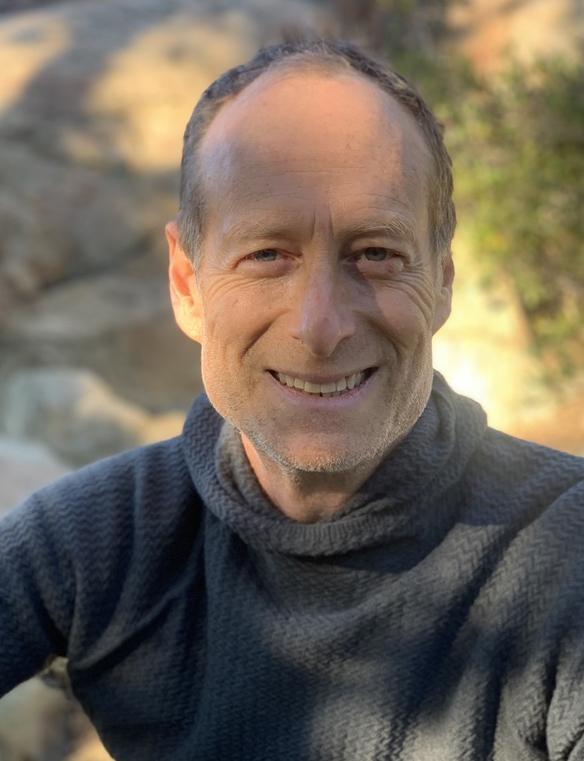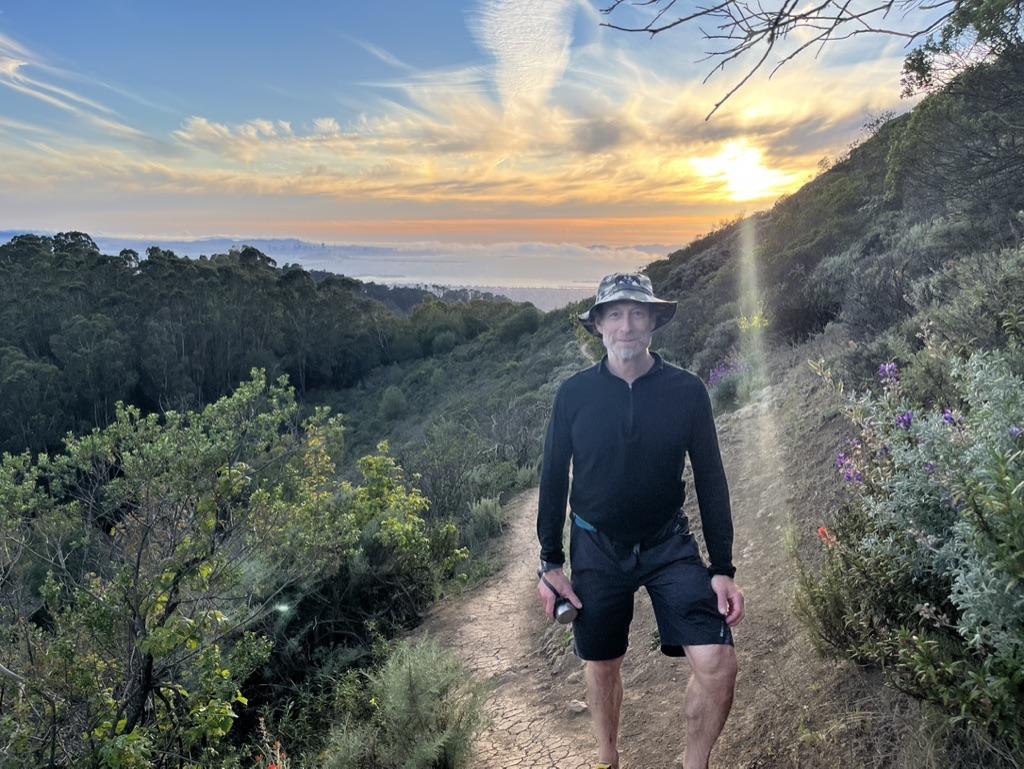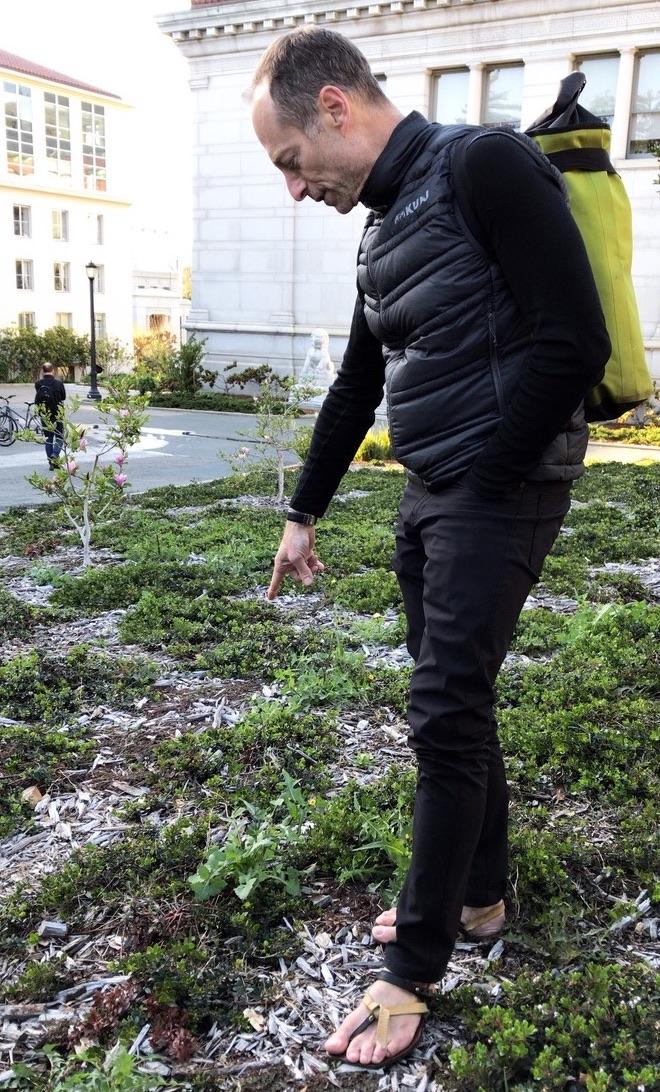
UC Berkeley statistics professor Philip Stark is no stranger to seeing his name in the media. He serves as an expert in response to reporter requests on such wide-ranging subjects as elections, earthquakes, the lottery and gender bias in academia.
"Because I do all this work on election integrity, I end up getting a lot of inquiries from the U.S. and abroad that are really about politics, not election integrity," said Stark, noting that he is not an expert on politics and declines to answer such questions. He added that communicating nuances about charged and polarizing topics like election security is a tremendous challenge.
Speaking of the 2020 presidential election, Stark said, "Democrats want to hear that people who doubt the election results are crazy, everything is fine and this is the most secure election ever. And that's not true. And on the other side, they say, 'Oh, the equipment has vulnerabilities; therefore, the Democrats stole the election.' And that's not true either. It's hard to get any subtlety across."
Even with these politically charged responses, Stark noted that some of his work on elections has been rewarding. The National Academies of Science, Engineering, and Medicine recommend his risk-limiting audit methods. And while challenges remain in how some jurisdictions implement these methods, they are now authorized or required to confirm election results in close to a dozen states.
For the Emmy-nominated HBO documentary “Kill Chain: The Cyber War on America's Elections,” Stark also enjoyed working with producers to figure out how to tell the story of his research.
Other standout collaborations include an earlier project on lottery fraud in Florida, where Stark worked with an applied mathematician, a probabilist and an investigative journalist from The Palm Beach Post on both the science and the storytelling. The resulting series of articles led to arrests for fraud and changes to how the state manages lottery kiosks.
Sharing knowledge as a public service
For academics interested in working with the media, Stark's advice is to be willing to call someone back or respond to an email – and to do it quickly since news is emergent and journalists won't wait for your reply.
Stark admitted that his interactions with reporters are sometimes far from satisfying: a news story may print his words out of context or spin a quote for an outlet's political purposes, even twisting words to mean the opposite of what he intended.
"There are some people who have an ax to grind, and they're going to use you to hone their ax no matter what you say," said Stark, noting there isn't much recourse in those situations. "You learn not to talk to that person again."
Despite this, he doesn't hesitate to respond when contacted by the press. "In general, I'm going to answer the phone," Stark said. "I'm going to do my best to help get an accurate message out because it's a public service."
However, he noted that there are reasons for researchers to think carefully about working with the media since it's not likely to strengthen a case for tenure or otherwise further their academic careers. Stark explained that media-related projects could take precious time away from research and may not count as scholarship or service on an academic CV.
He points to his work on elections as an example. Stark has spent an enormous amount of time on the ground in local election offices, talking to state and federal legislators and election integrity advocates, trying to understand problems and to develop and explain solutions. He did this because he believes it's important to share knowledge, even if the research isn't a good fit for a refereed journal.
"We work for a public university," said Stark. "It's part of our mission to do things that are of public value."
Communicating science through metaphors
When speaking to journalists, Stark draws on a strategy of using metaphor to convey core statistics or security concepts. He said the classroom offers a lot of practice in this area and helps him identify "when the penny falls in the slot."
One example involves the concept of random sampling. Stark said people often question how you can assess the accuracy of an election in which millions voted by looking at a small number of ballots, rather than some appreciable percentage of the total votes.
"The key is that it's random," Stark explained. "Random sampling is like tasting soup to find out if the soup is too salty. And how do you find out if the soup is too salty? You stir up the pot thoroughly, and you taste a tablespoon."
"A tablespoon is enough, whether it's a one-quart saucepan or a 50-gallon cauldron," continues Stark. "You don't need to taste some particular fraction of the soup. What matters here is that you're stirring it up thoroughly and then tasting a tablespoon – that is a random sample of soup." By contrast, Stark described a haphazard sample as sticking in a spoon without looking, but failing to stir the soup well first.
In another example, Stark uses a medical metaphor to distinguish procedure-based approaches for assessing election results from evidence-based ones. A procedure-based approach, said Stark, "is like a brain surgeon saying, 'I used the sterile scalpel, I followed proper surgical procedure; therefore, the patient is fine.' Maybe you want to look at the patient, too?"
"In elections, " Stark continued, "officials say, 'We use certified equipment, we follow the rules; therefore, the outcome is right.' Maybe you want to do some checking? You can use certified equipment and have it function no better than a doorstop."
While working in geophysics and cosmology early in his career, Stark learned that it's less convincing to prove mathematically that a method is broken than to show an example of that method yielding a ridiculous result. This scientific storytelling became increasingly important to him in 2008 as he worked to explain election auditing methods to election officials, election integrity advocates and the general public. When he saw the power of storytelling to change minds and deepen understanding, his search for metaphors began in earnest.
"There is this idea that you can kind of hack the brain stem – that you can find a way to say something so that people will never be able to think about it the same way again," said Stark.
Urban foraging adventure and education

Stark is a trail runner, and the seed for another public service-oriented project was planted during his East Bay runs. He grew curious about the plants he saw, learned their names and then looked deeper, asking, "What's this good for? Can I eat it? Is it medicine?" Stark began to nibble on what he found and then started filling his pockets with plants.
He challenged himself to forage for a plant to eat every day and to learn a new edible plant every week. Then he began to ask, "If it's growing in a crack in the sidewalk, is it safe to eat or not?"
"We're all genetically programmed to do this," Stark said. "It's hunter-gatherer stuff. It's the most basic interaction with the world to look for resources and threats."
While he initially thought of this as private knowledge he could use in the event of a catastrophe, he came to see urban foraging as an opportunity to empower people who do not have food security.
"If these plants growing in urban environments really are safe to eat, then in places that are nominally ‘food deserts,’ what might be missing is not the food, but the information about what is food," said Stark. "The idea that I as an educator could feed people by teaching them something – by giving them information rather than the food itself – that was just delicious, no pun intended."
Stark developed a research project called Berkeley Open Source Food and began working with urban gardeners and farmers in the Bay Area to demonstrate they were growing more food than they realized in between rows of crops. Stark has also led urban weed walks and an East Bay emergency preparedness event called "Seismic Salad: Fresh Food after The Big One."

Since 2014, Berkeley Open Source Food has hosted an annual Feral/Wild Food Week encouraging chefs to include foraged ingredients on their menus and helping farmers identify which so-called “weeds” they could bring to market.
"It's not like we've discovered that some new plant is edible," said Stark. "We've pointed out the fact that this plant has been known to be edible for 10,000 years. It's just fallen out of fashion."
Stark links the unfashionableness of these plants to an industrial approach to agriculture that relies heavily on inputs of energy, synthesized chemicals and engineered seeds. "There's not much that could have a lower carbon, water and energy footprint than food that is literally growing at your doorstep," said Stark, who predicts that as our climate changes, scientists will be increasingly tasked with engineering foods that are more resilient to unfavorable growing conditions.
"The fact is that nature has already done that experiment for us," said Stark. "And we have all these plants that really are delicious, highly nutritious, don't need to be watered specifically, don't need to be fertilized, compete very well in a wide range of hostile environments and could contribute to a more biodiverse diet – which is one of the strongest predictors of health."
While Stark's work on urban foraging thus far has yet to include a statistical component, he said that with additional funding, he would love to research how much growing conditions impact the nutritional density of food. In preliminary tests, Stark and his collaborators found that foraged dandelion had two and a half times as much fiber and twice as much iron per serving as farmed dandelion and that many abundant wild plants are more nutritious than kale or spinach, for example. Stark is interested in better understanding whether the stress response in plants grown in more hostile environments might contribute to greater nutrition.
"Be intellectually shameless"
Many researchers might be understandably daunted by diving deeply into subjects outside their area of expertise, but Stark is quick to point out that his undergraduate degree is in philosophy, his Ph.D. is in geophysics and he's never taken a statistics class in his life. "The advice I give my students is: 'Be intellectually shameless,'" said Stark.
He acknowledged that as a white, middle-class male of European descent with an Ivy League education, it's easier for him to walk confidently into a room and ask questions to satisfy his curiosity. However, he urges all students to feel empowered to do just that – to walk into a room and ask other people about their expertise – because part of the beauty of being a statistician is that there's some chance you'll be able to do something helpful.
Stark admitted he likes best the steepest part of the learning curve, where he's virtually ignorant and gaining knowledge rapidly. "It's fun! So I become very intellectually shameless," he explained.
In that vein, he recently published his first paper on carbon sequestration in agricultural and rangeland soils in collaboration with Timothy Bowles, assistant professor of agroecology and sustainable agricultural systems, and graduate students Paige Stanley, Jake Spertus and Jessica Chiartas. When he started the project, Stark knew little about geochemistry or soils. He wanted to assess the evidence behind claims that regenerative agricultural management practices can sequester enough carbon to slow or stop climate change, and he recognized that this hinged on statistical questions about sampling and measurement error.
"I'm curious. I wonder what's going on and then worry much later about whether I can publish the results anywhere," reflected Stark. "The world is full of interesting problems."
